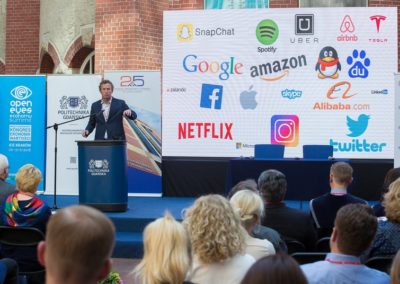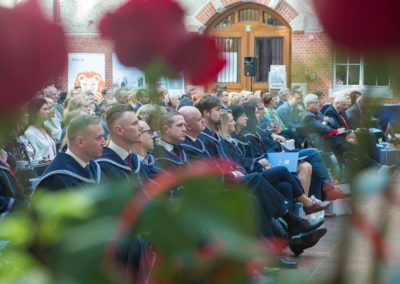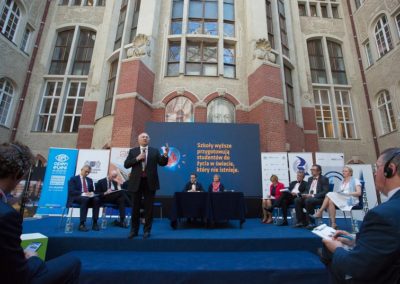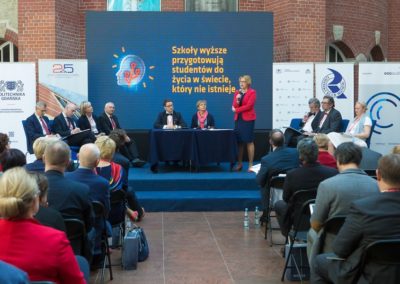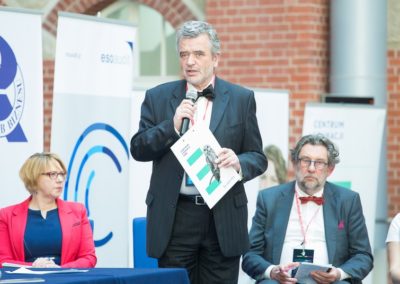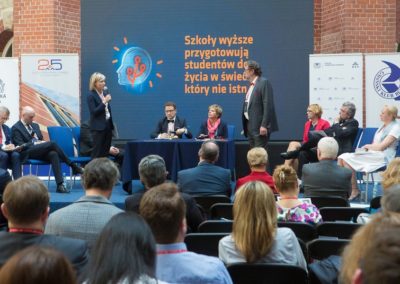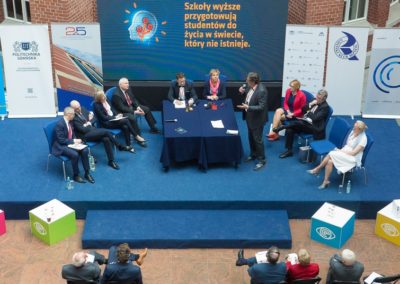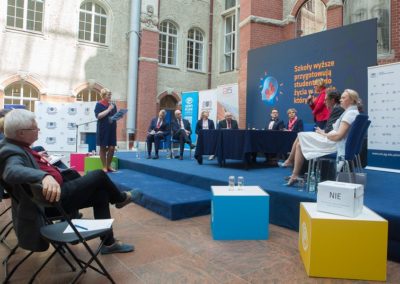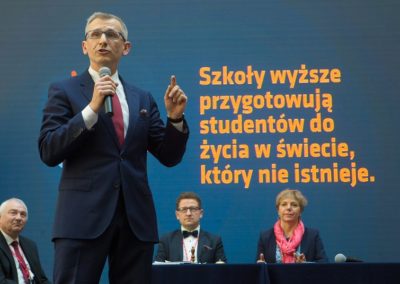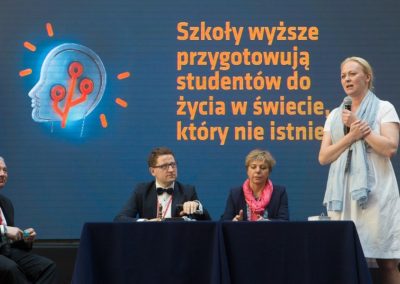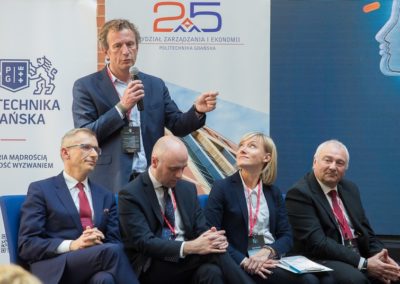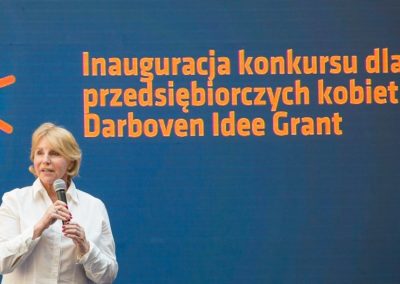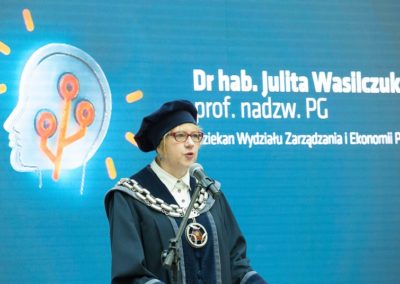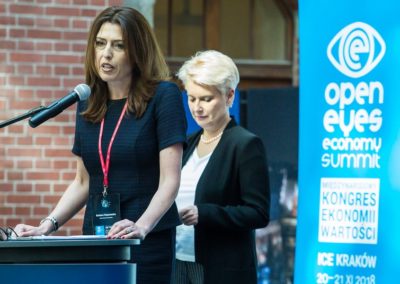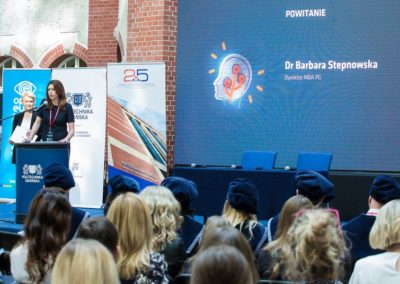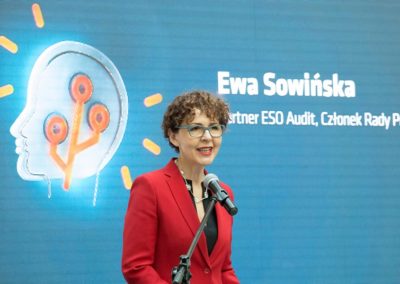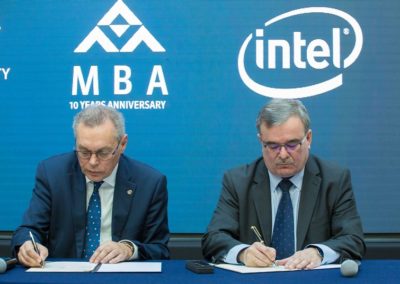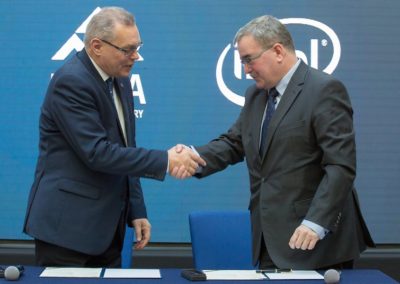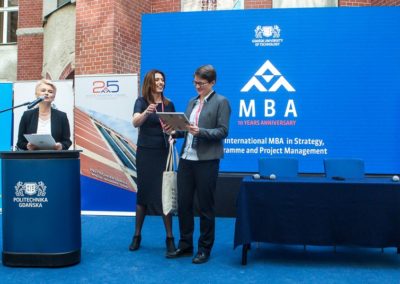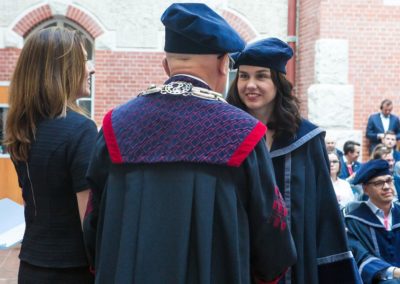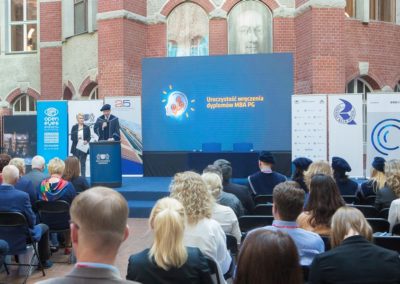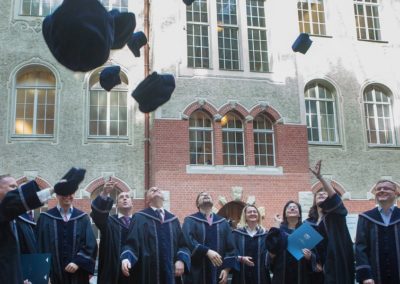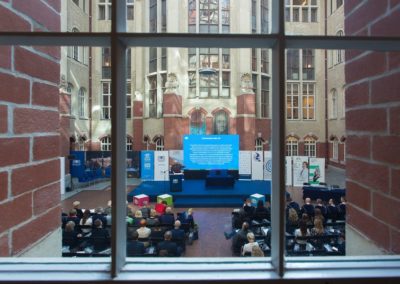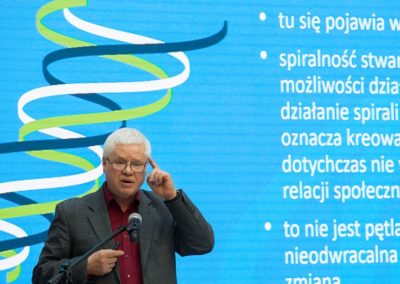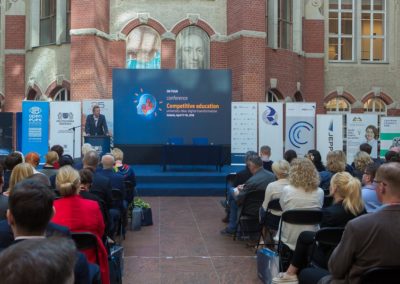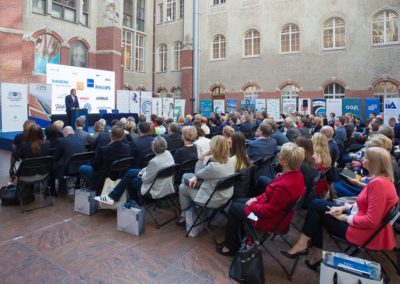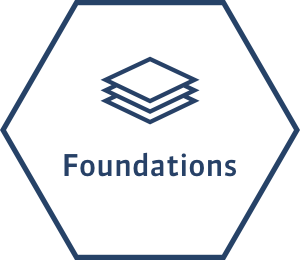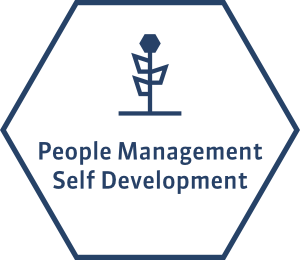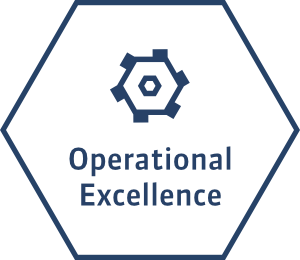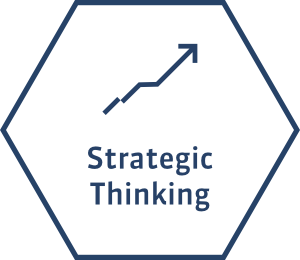Everyone learns from everyone
Higher education institutions are talent mines – said Prof. Jerzy Hausner during the conference “Competitive Education. University-Idea: Digital Transformation”, held at the Sopot Hotel in Sopot on 17 April this year, and the following day at Gdańsk University of Technology, as part of the Open Eyes Economy On Tour. The crucial thing is to see this, to want these talents to grow and at the same time support their development. The invited speakers and participants at the Oxford-Style debate, which was the focal point of the event, indicated both strengths and weaknesses of education on the academic level and emphasised the importance of mutual cooperation between university and business. The conference was accompanied by awarding diplomas to graduates of the MBA programme from Gdańsk University of Technology, signing a declaration of cooperation between Gdańsk University of Technology and Intel, as well as the inauguration of a contest for women developing innovative ideas, organised by Darboven Idee Grant Ltd.
According to Prof. Jerzy Hausner’s the spirit of academia fades if students are treated impersonally, such as registration numbers. Meanwhile, we are observing an increasingly visible weakening of the direct relationship between lecturers and students. The problem is a rapid massification of higher education, extorting the commercialization of many didactic services and ill-considered institutional and organizational changes, which reduce the role of a university to a diploma factory. It results in the loss of community. All this leads to the situation in which universities produce graduates, at the same time losing the function of centres that create ideas and values.
At the Oxford-Style debate, motion: “Universities Prepare Students to Live in a World that Does Not Exist”, compelling arguments were delivered by Krzysztof Kwiatkowski, the President of the Supreme Audit Office: “What do Disney and Ford have in common? They both abandoned education and went on to pursue the road of business. They did not let the school stand in their way of education”. Anna Grosiak, Head of Business Development at Siemens Sp. z o.o., emphasized that we are dealing with three separate worlds: the world of business, the world of university and the world of students. The problem is precisely this separateness, the impenetrability of these worlds. Young people come to companies with a diploma, but are completely unprepared for work. “Business takes this burden, because there is no other way to prepare graduates for the job and functioning in the company” she said. Dr. André Helin, President of BDO and Jakub Wojnarowski, Managing Director of ACCA also evaluated higher schools critically. However, universities and their cooperation with business were defended by Prof. Julita Wasilczuk, Dean of the Faculty of Management and Economics at the Gdańsk University of Technology; Prof. Dariusz Filar, an economist and a writer; Piotr Voelkel, VOX Capital Group; Joanna Bochniarz, President of the Board of the Innovative Education Center in Brussels. They pointed to the openness of higher education institutions to collaborate with companies, e.g. inviting practitioners to conduct classes, introducing changes in organizational structures which aim to facilitate the establishment of cooperation with business, appointing consultative councils where entrepreneurs play a significant role.
The debate was commented by experts from the Mentor Lodge: Prof. Jerzy Hausner, Cracow University of Economics; Prof. Witold Bielecki, Rector of Kozminski University, Alain Heureux, Brussels Creative Ring; Tom Clark, Skills Hub, Innovative Education Center, Brussels and Dr. Henryk Bochniarz, President of the Lewiatan Confederation. Among them, only Henryk Bochniarz stood on the side of those defending universities, arguing that education does not end at high school, and the role of business is to further educate graduates.
At the majority of presentations at the conference, one salient point resounded. In the world of digital transformation, in which changes take place at an unprecedented pace, huge importance is placed on readiness for continuous learning – young people learning from older ones (and vice versa), employees from superiors (and vice versa), students from lecturers (and vice versa), academia from the business milieu (and vice versa). A clear division between teachers and learners is disappearing. Everyone learns from everyone – and this requires openness, cooperation and communication skills.
“Only in this way – through talking, working out common solutions, learning from each other – we will meet challenges that the future brings and which we cannot even name today, let alone define,” summarized the organizers of the conference Ewa Sowińska, ESO Audit Partner; Dr. Barbara Stepnowska, MBA Studies at the Gdańsk University of Technology and Dorota Sobieniecka-Kańska, Director of the Gdańsk Business Club.
The Conference “Competitive Education. University-Idea: Digital Transformation” is yet another initiative of Ewa Sowińska, Dr. Barbara Stepnowska and Dorota Sobieniecka-Kańska, who work together under the banner of the Exchange of Experiences Forum. The mission of EEF is to build relationships between different environments. Such relationships should be based on trust and responsibility for common actions, taking into consideration the benefits for the community, education and business development, without the need to formalize activities and build structures.


